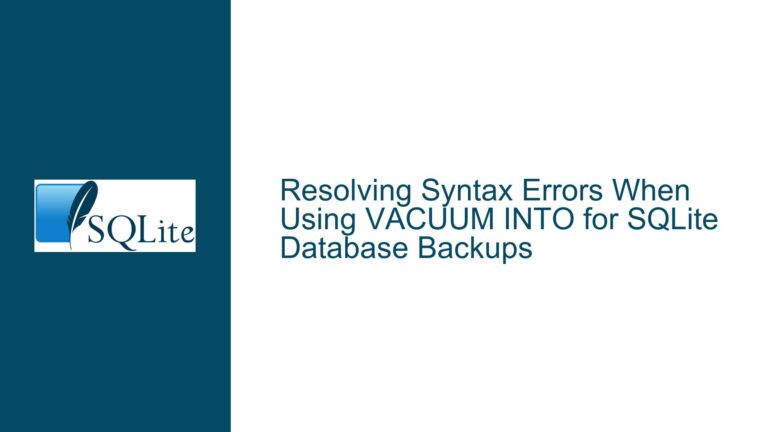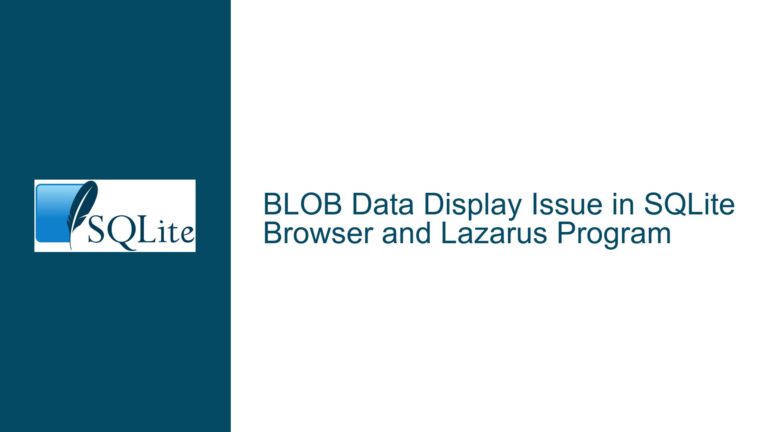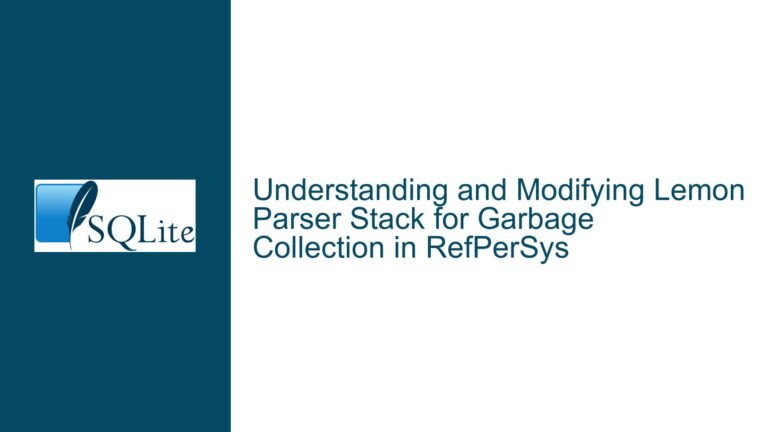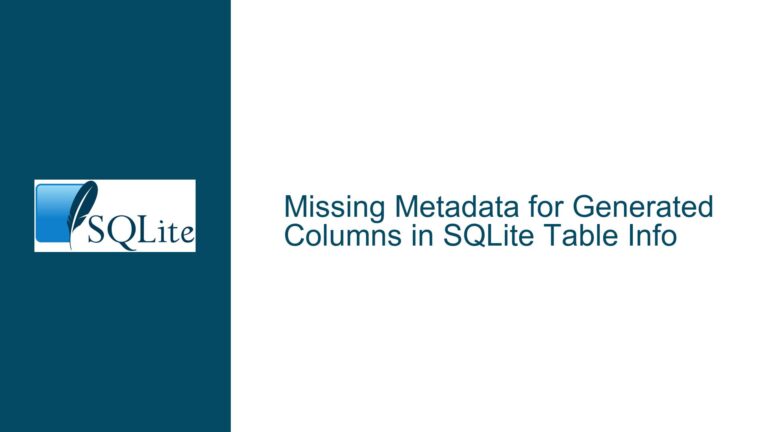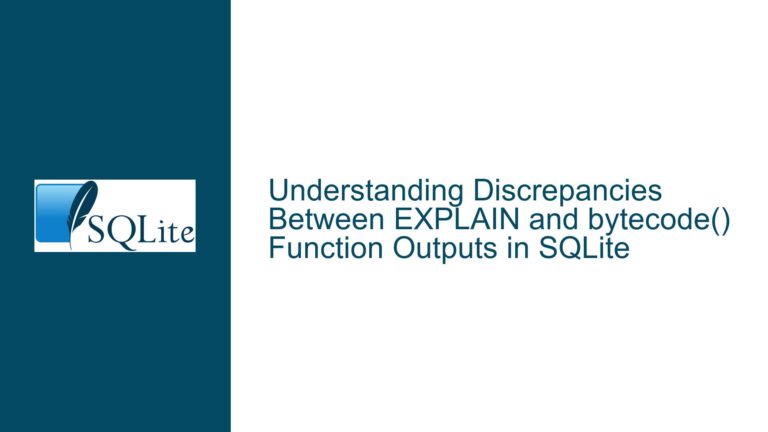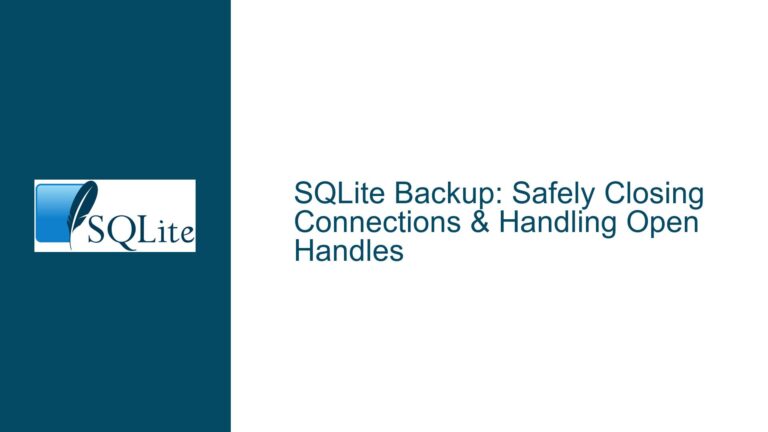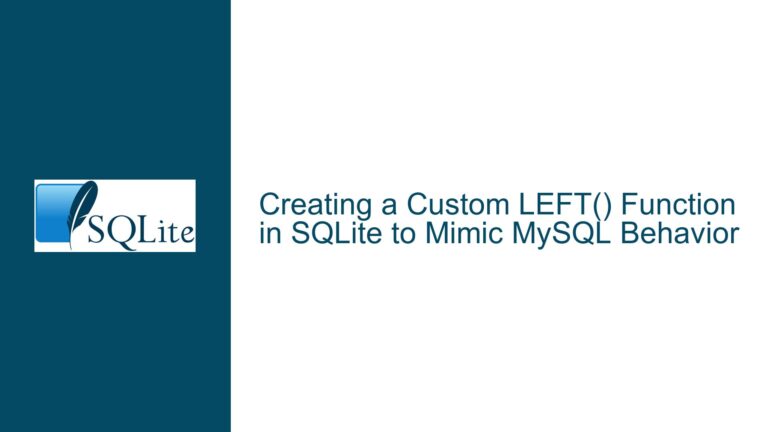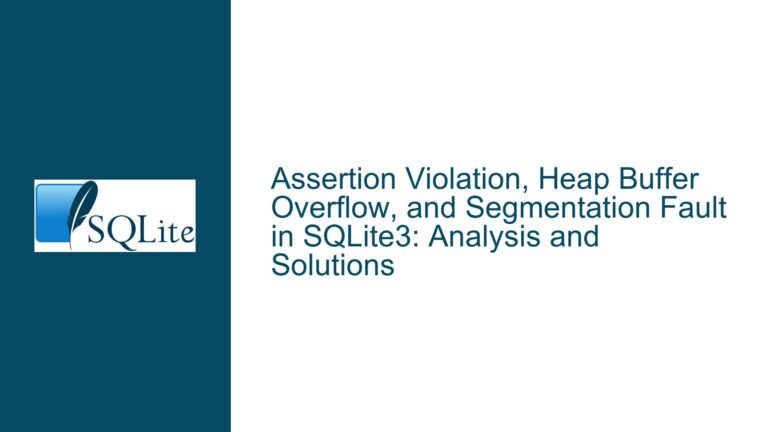Resolving Compiler Warnings for sqlite3_column_text Across macOS and Linux
Compiler Warnings with sqlite3_column_text on macOS vs. Linux The core issue revolves around a compile-time error that occurs exclusively in macOS environments when using the SQLite C API function sqlite3_column_text(). The error manifests as a pointer type mismatch between const unsigned char* (returned by the SQLite function) and const char* (expected by a test assertion…

